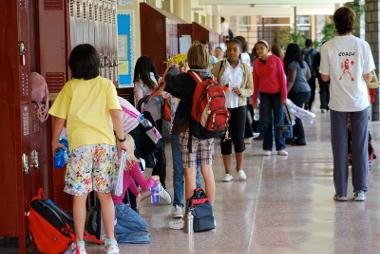Race in schools
Students who feel they belong perform better. And when students feel stereotyped in school, their academic performance suffers. Years of sociological research bear this out. But there are other, subtler elements that can contribute to a school’s racial climate and impact student outcomes.

“The biggest surprise was how understudied some of these factors are,” especially the negative outcomes when racial differences are simply ignored, said Christy Byrd, assistant professor of psychology.
Byrd studies how students perceive their school environment in relation to their racial and cultural identities. Her survey of adolescent students led to a new framework that combines a wide variety of factors impacting students’ sense of belonging.
“It’s about how they all fit together,” said Byrd, who hopes her framework will inform future research. The most influential factors included the quality of interactions between racial groups, whether students felt they were treated fairly, and if there were opportunities to learn about other cultures, prejudice, and racial inequality.
Her work also shows that students with a strong sense of belonging in their school’s racial climate felt more motivated compared to students who believed their racial identities were represented negatively or not at all. And crucially, strong intrinsic motivation correlated closely with academic engagement and success.

